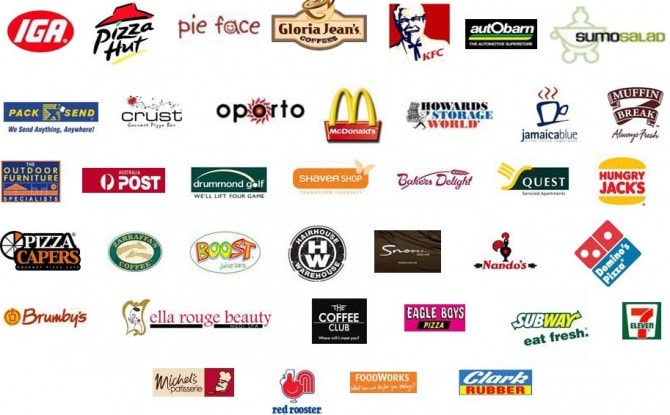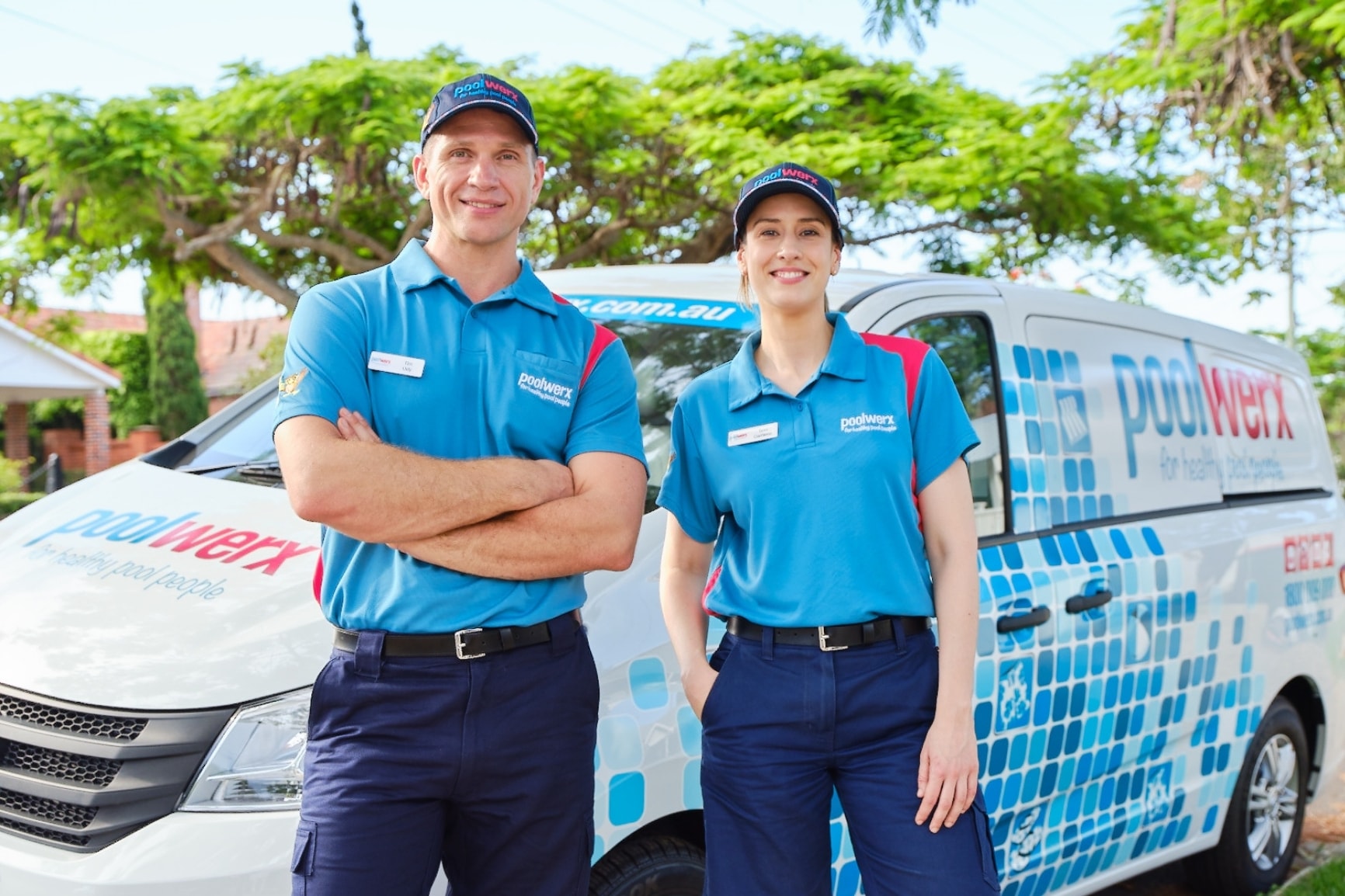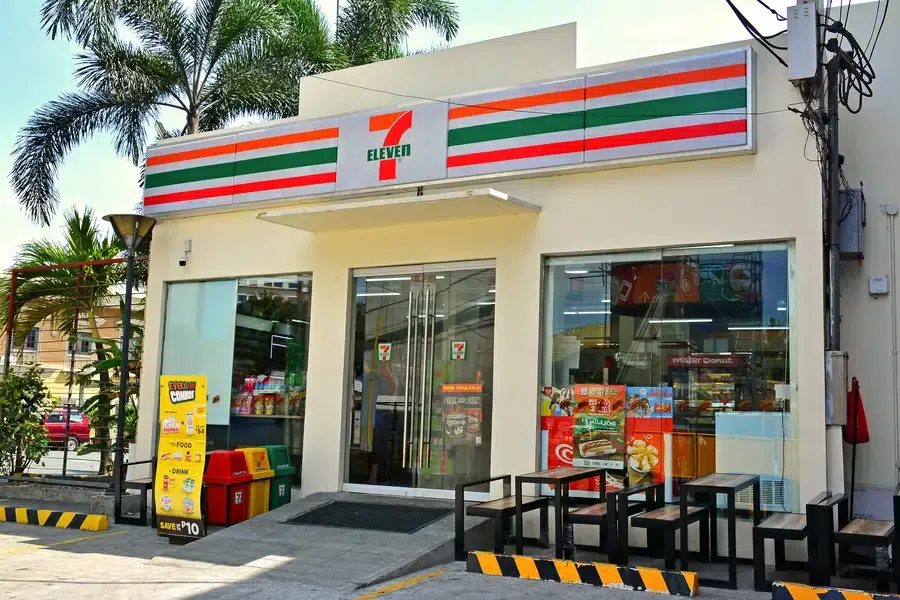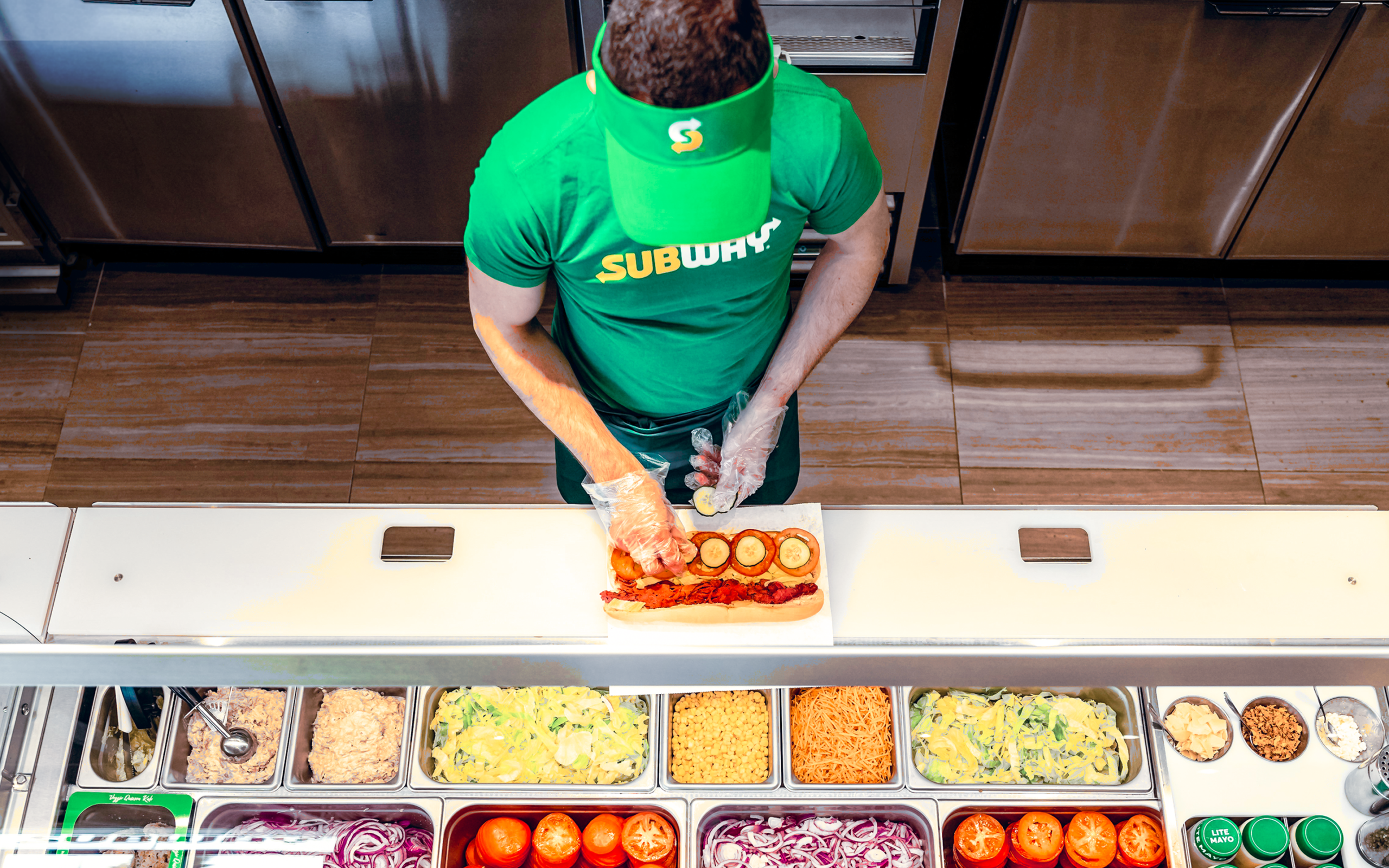Having worked with over 200 business owners through the franchise maze, and I’ve seen the highs and lows of buying a business franchise.
My experience in consulting and advising potential franchisees has given me a deep understanding of the Australian franchise landscape. Buying a franchise can be a valuable alternative to starting a new business or purchasing an existing business. In this article I’ll share 7 things to consider before you take the plunge into franchise ownership. These will help you avoid the traps, clear up the myths and make an informed decision about your future.

1. Understanding Franchises
What is a Franchise Opportunity?
A franchise opportunity is a business arrangement where an individual or group (franchisee) pays a licensing fee to use the branding, trademarks, products, suppliers, and systems of an established business (franchisor). This allows the franchisee to operate a business using the franchisor’s proven business model, while also receiving support and guidance from the franchisor. Essentially, you’re buying into a business that has already demonstrated success, which can significantly reduce the risks associated with starting a new venture from scratch.
The beauty of a franchise opportunity lies in the balance of independence and support. You get to run your own business, but with the backing of a brand that has already ironed out the kinks and developed a successful formula. This can be particularly appealing for first-time business owners who may not have the experience or resources to build a business from the ground up.
How Buying a Business Franchise Differs from Running Your Own Business
Franchising differs from running your own business in several key ways. When you run your own business, you have complete control over the business model, products, and services offered. You can innovate, pivot, and make decisions based on your vision and market demands. However, this also means you bear all the risks and responsibilities, from developing a business plan to marketing and operations.
In contrast, when you buy a franchise, you are required to follow the franchisor’s system and guidelines, which can limit your flexibility and autonomy. The franchisor provides a blueprint for success, but this comes with certain constraints. You’ll need to adhere to established procedures, use approved suppliers, and participate in mandatory marketing campaigns. Additionally, franchising typically involves paying ongoing fees to the franchisor, such as marketing fees and royalties, which can eat into your profit margins.
While these fees contribute to the overall support and brand recognition you receive, they are an important factor to consider when evaluating the financial viability of a franchise. Ultimately, the decision between starting your own business and buying a franchise depends on your personal goals, risk tolerance, and desire for independence versus support.

Know the Australian Franchise Landscape and Proven Business Models
Before we get into the weeds of buying a franchise, you need to understand the state of franchising in Australia. The franchise sector is a big part of the Australian economy with over 1,200 franchise systems in Australia as of 2022 according to the Franchise Council of Australia (FCA).
The Australian franchise market is mature and regulated thanks to the Franchising Code of Conduct which provides a framework for the rights and obligations of franchisors and franchisees. This code administered by the Australian Competition and Consumer Commission (ACCC) provides more protection than is often available in other countries.
When looking at franchise franchises, consider the balance between the support offered by established brands and the limitations imposed by franchisors. Evaluate the initial commitment, operational restrictions tied to franchise agreements, and the benefits of a well-known brand against potential drawbacks like market saturation and franchisor control. The FCA’s annual surveys and reports will give you valuable insights into sector specific trends and overall market conditions.
2. Do Your Due Diligence on the Franchise Agreement
One of the biggest mistakes I see potential franchisees make is rushing into a decision without doing their due diligence. Buying a franchise is a big investment, financially and personally so you need to gather as much information as possible before you commit.
Certain franchise options are tailored specifically for small business owners and executives, emphasizing their commitment to supporting entrepreneurs.
Start by carefully reviewing the Franchise Disclosure Document (FDD). In Australia franchisors are required to give this to potential franchisees at least 14 days before signing an agreement or making any non-refundable payments. The FDD will contain information about the franchise system including:
-
Franchisor’s business experience
-
Litigation history
-
Bankruptcy disclosures
-
Initial and ongoing fees
-
Obligations of both the franchisor and franchisee
-
Territory rights
-
Renewal and termination conditions
Don’t just skim this document – read it carefully and get professional advice to help you understand it. A franchise lawyer and an accountant with franchise experience will be invaluable.
Beyond the FDD, talk to current and former franchisees. Their experience will give you a realistic view of what it’s like to operate in the system. Ask about their relationship with the franchisor, the level of support they get and whether the business has met their expectations financially and personally.
Remember a franchisor should be transparent and answer your questions. If you get resistance or evasion consider it a red flag.

3. Are You Financially Ready for Franchise Fees?
Understanding the full financial implications of buying a franchise is critical. Many aspiring franchisees focus on the initial franchise fee and overlook other big costs involved in getting the business up and running.
According to the Franchise Council of Australia the average initial investment for a franchise in Australia is between $50,000 to $500,000 depending on the industry and brand. But that’s just the start. You’ll need to consider:
-
Working capital: Funds to cover operating expenses until the business is profitable
-
Fit-out costs: Especially relevant for retail or hospitality franchises
-
Equipment and inventory
-
Marketing fees: Many franchisors require contributions to a marketing fund
-
Ongoing royalties: Usually a percentage of gross sales
-
Training costs: Initial and ongoing
-
Legal and accounting fees
You need to create a full business plan with realistic financial projections. Be conservative on revenue and generous on expenses. Factor in economic downturns or unexpected events. Talk to a business finance broker to understand the lending options available as well.
Also consider your personal financial situation. Do you have savings to fall back on if the business takes longer to turn a profit? Can you live off your lifestyle while re-investing profits back into the business during the early stages?
Remember undercapitalisation is a leading cause of business failure. It’s better to overestimate your financial needs than to find yourself struggling to keep the business afloat a few months in.
[fusion_code]PCFET0NUWVBFIGh0bWw+CjxodG1sIGxhbmc9ImVuIj4KPGhlYWQ+CiAgICA8bWV0YSBjaGFyc2V0PSJVVEYtOCI+CiAgICA8bWV0YSBuYW1lPSJ2aWV3cG9ydCIgY29udGVudD0id2lkdGg9ZGV2aWNlLXdpZHRoLCBpbml0aWFsLXNjYWxlPTEuMCI+CiAgICA8dGl0bGU+QXVzdHJhbGlhbiBGcmFuY2hpc2UgQ29zdCBDYWxjdWxhdG9yIHwgRXN0aW1hdGUgWW91ciBJbnZlc3RtZW50PC90aXRsZT4KICAgIDxtZXRhIG5hbWU9ImRlc2NyaXB0aW9uIiBjb250ZW50PSJVc2Ugb3VyIGZyZWUgQXVzdHJhbGlhbiBGcmFuY2hpc2UgQ29zdCBDYWxjdWxhdG9yIHRvIGVzdGltYXRlIHRoZSB0b3RhbCBpbnZlc3RtZW50IG5lZWRlZCBmb3IgYnV5aW5nIGEgYnVzaW5lc3MgZnJhbmNoaXNlLiBHZXQgYWNjdXJhdGUgaW5zaWdodHMgZm9yIHlvdXIgZnJhbmNoaXNlIHZlbnR1cmUuIj4KICAgIDxtZXRhIG5hbWU9ImtleXdvcmRzIiBjb250ZW50PSJmcmFuY2hpc2UgY29zdCBjYWxjdWxhdG9yLCBidXlpbmcgYSBidXNpbmVzcyBmcmFuY2hpc2UsIEF1c3RyYWxpYW4gZnJhbmNoaXNlIGludmVzdG1lbnQsIGZyYW5jaGlzZSBzZXR1cCBjb3N0cyI+CjwvaGVhZD4KPGJvZHk+CiAgICA8ZGl2IGNsYXNzPSJmcmFuY2hpc2UtY2FsY3VsYXRvciIgc3R5bGU9ImZvbnQtZmFtaWx5OiBBcmlhbCwgc2Fucy1zZXJpZjsgbGluZS1oZWlnaHQ6IDEuNjsgbWF4LXdpZHRoOiA1MDBweDsgbWFyZ2luOiAwIGF1dG87IHBhZGRpbmc6IDIwcHg7IGJhY2tncm91bmQtY29sb3I6ICNmZmY7IGJvcmRlci1yYWRpdXM6IDhweDsgYm94LXNoYWRvdzogMCAwIDEwcHggcmdiYSgwLDAsMCwwLjEpOyI+CiAgICAgICAgPGgxIHN0eWxlPSJjb2xvcjogIzMzMzsgdGV4dC1hbGlnbjogY2VudGVyOyI+QXVzdHJhbGlhbiBGcmFuY2hpc2UgQ29zdCBDYWxjdWxhdG9yPC9oMT4KICAgICAgICA8cCBzdHlsZT0ibWFyZ2luLWJvdHRvbTogMjBweDsiPkVzdGltYXRlIHRoZSB0b3RhbCBpbnZlc3RtZW50IG5lZWRlZCBmb3IgYnV5aW5nIGEgYnVzaW5lc3MgZnJhbmNoaXNlIGluIEF1c3RyYWxpYS4gVGhpcyBjYWxjdWxhdG9yIGhlbHBzIHlvdSB1bmRlcnN0YW5kIHRoZSB2YXJpb3VzIGNvc3RzIGludm9sdmVkIGluIHN0YXJ0aW5nIHlvdXIgZnJhbmNoaXNlIHZlbnR1cmUuPC9wPgogICAgICAgIDxmb3JtIGlkPSJmcmFuY2hpc2VGb3JtIj4KICAgICAgICAgICAgPGRpdiBjbGFzcz0iZm9ybS1ncm91cCIgc3R5bGU9Im1hcmdpbi1ib3R0b206IDE1cHg7Ij4KICAgICAgICAgICAgICAgIDxsYWJlbCBmb3I9ImZyYW5jaGlzZUZlZSIgc3R5bGU9ImRpc3BsYXk6IGJsb2NrOyBtYXJnaW4tYm90dG9tOiA1cHg7Ij5Jbml0aWFsIEZyYW5jaGlzZSBGZWUgKEFVRCk6PC9sYWJlbD4KICAgICAgICAgICAgICAgIDxpbnB1dCB0eXBlPSJudW1iZXIiIGlkPSJmcmFuY2hpc2VGZWUiIHJlcXVpcmVkIGFyaWEtbGFiZWw9IkluaXRpYWwgRnJhbmNoaXNlIEZlZSBpbiBBdXN0cmFsaWFuIERvbGxhcnMiIHN0eWxlPSJ3aWR0aDogMTAwJTsgcGFkZGluZzogOHB4OyBib3JkZXI6IDFweCBzb2xpZCAjZGRkOyBib3JkZXItcmFkaXVzOiA0cHg7IGJveC1zaXppbmc6IGJvcmRlci1ib3g7Ij4KICAgICAgICAgICAgPC9kaXY+CgogICAgICAgICAgICA8ZGl2IGNsYXNzPSJmb3JtLWdyb3VwIiBzdHlsZT0ibWFyZ2luLWJvdHRvbTogMTVweDsiPgogICAgICAgICAgICAgICAgPGxhYmVsIGZvcj0ic2V0dXBDb3N0cyIgc3R5bGU9ImRpc3BsYXk6IGJsb2NrOyBtYXJnaW4tYm90dG9tOiA1cHg7Ij5TZXR1cCBDb3N0cyAoRXF1aXBtZW50LCBGaXQtb3V0LCBldGMuKSAoQVVEKTo8L2xhYmVsPgogICAgICAgICAgICAgICAgPGlucHV0IHR5cGU9Im51bWJlciIgaWQ9InNldHVwQ29zdHMiIHJlcXVpcmVkIGFyaWEtbGFiZWw9IlNldHVwIENvc3RzIGluY2x1ZGluZyBFcXVpcG1lbnQgYW5kIEZpdC1vdXQgaW4gQXVzdHJhbGlhbiBEb2xsYXJzIiBzdHlsZT0id2lkdGg6IDEwMCU7IHBhZGRpbmc6IDhweDsgYm9yZGVyOiAxcHggc29saWQgI2RkZDsgYm9yZGVyLXJhZGl1czogNHB4OyBib3gtc2l6aW5nOiBib3JkZXItYm94OyI+CiAgICAgICAgICAgIDwvZGl2PgoKICAgICAgICAgICAgPGRpdiBjbGFzcz0iZm9ybS1ncm91cCIgc3R5bGU9Im1hcmdpbi1ib3R0b206IDE1cHg7Ij4KICAgICAgICAgICAgICAgIDxsYWJlbCBmb3I9IndvcmtpbmdDYXBpdGFsIiBzdHlsZT0iZGlzcGxheTogYmxvY2s7IG1hcmdpbi1ib3R0b206IDVweDsiPldvcmtpbmcgQ2FwaXRhbCAoMy02IG1vbnRocykgKEFVRCk6PC9sYWJlbD4KICAgICAgICAgICAgICAgIDxpbnB1dCB0eXBlPSJudW1iZXIiIGlkPSJ3b3JraW5nQ2FwaXRhbCIgcmVxdWlyZWQgYXJpYS1sYWJlbD0iV29ya2luZyBDYXBpdGFsIGZvciAzIHRvIDYgbW9udGhzIGluIEF1c3RyYWxpYW4gRG9sbGFycyIgc3R5bGU9IndpZHRoOiAxMDAlOyBwYWRkaW5nOiA4cHg7IGJvcmRlcjogMXB4IHNvbGlkICNkZGQ7IGJvcmRlci1yYWRpdXM6IDRweDsgYm94LXNpemluZzogYm9yZGVyLWJveDsiPgogICAgICAgICAgICA8L2Rpdj4KCiAgICAgICAgICAgIDxkaXYgY2xhc3M9ImZvcm0tZ3JvdXAiIHN0eWxlPSJtYXJnaW4tYm90dG9tOiAxNXB4OyI+CiAgICAgICAgICAgICAgICA8bGFiZWwgZm9yPSJtYXJrZXRpbmdGZWUiIHN0eWxlPSJkaXNwbGF5OiBibG9jazsgbWFyZ2luLWJvdHRvbTogNXB4OyI+SW5pdGlhbCBNYXJrZXRpbmcgRmVlIChBVUQpOjwvbGFiZWw+CiAgICAgICAgICAgICAgICA8aW5wdXQgdHlwZT0ibnVtYmVyIiBpZD0ibWFya2V0aW5nRmVlIiByZXF1aXJlZCBhcmlhLWxhYmVsPSJJbml0aWFsIE1hcmtldGluZyBGZWUgaW4gQXVzdHJhbGlhbiBEb2xsYXJzIiBzdHlsZT0id2lkdGg6IDEwMCU7IHBhZGRpbmc6IDhweDsgYm9yZGVyOiAxcHggc29saWQgI2RkZDsgYm9yZGVyLXJhZGl1czogNHB4OyBib3gtc2l6aW5nOiBib3JkZXItYm94OyI+CiAgICAgICAgICAgIDwvZGl2PgoKICAgICAgICAgICAgPGRpdiBjbGFzcz0iZm9ybS1ncm91cCIgc3R5bGU9Im1hcmdpbi1ib3R0b206IDE1cHg7Ij4KICAgICAgICAgICAgICAgIDxsYWJlbCBmb3I9InRyYWluaW5nQ29zdHMiIHN0eWxlPSJkaXNwbGF5OiBibG9jazsgbWFyZ2luLWJvdHRvbTogNXB4OyI+VHJhaW5pbmcgQ29zdHMgKEFVRCk6PC9sYWJlbD4KICAgICAgICAgICAgICAgIDxpbnB1dCB0eXBlPSJudW1iZXIiIGlkPSJ0cmFpbmluZ0Nvc3RzIiByZXF1aXJlZCBhcmlhLWxhYmVsPSJUcmFpbmluZyBDb3N0cyBpbiBBdXN0cmFsaWFuIERvbGxhcnMiIHN0eWxlPSJ3aWR0aDogMTAwJTsgcGFkZGluZzogOHB4OyBib3JkZXI6IDFweCBzb2xpZCAjZGRkOyBib3JkZXItcmFkaXVzOiA0cHg7IGJveC1zaXppbmc6IGJvcmRlci1ib3g7Ij4KICAgICAgICAgICAgPC9kaXY+CgogICAgICAgICAgICA8ZGl2IGNsYXNzPSJmb3JtLWdyb3VwIiBzdHlsZT0ibWFyZ2luLWJvdHRvbTogMTVweDsiPgogICAgICAgICAgICAgICAgPGxhYmVsIGZvcj0ibGVnYWxBY2NvdW50aW5nRmVlcyIgc3R5bGU9ImRpc3BsYXk6IGJsb2NrOyBtYXJnaW4tYm90dG9tOiA1cHg7Ij5MZWdhbCBhbmQgQWNjb3VudGluZyBGZWVzIChBVUQpOjwvbGFiZWw+CiAgICAgICAgICAgICAgICA8aW5wdXQgdHlwZT0ibnVtYmVyIiBpZD0ibGVnYWxBY2NvdW50aW5nRmVlcyIgcmVxdWlyZWQgYXJpYS1sYWJlbD0iTGVnYWwgYW5kIEFjY291bnRpbmcgRmVlcyBpbiBBdXN0cmFsaWFuIERvbGxhcnMiIHN0eWxlPSJ3aWR0aDogMTAwJTsgcGFkZGluZzogOHB4OyBib3JkZXI6IDFweCBzb2xpZCAjZGRkOyBib3JkZXItcmFkaXVzOiA0cHg7IGJveC1zaXppbmc6IGJvcmRlci1ib3g7Ij4KICAgICAgICAgICAgPC9kaXY+CgogICAgICAgICAgICA8YnV0dG9uIHR5cGU9InN1Ym1pdCIgc3R5bGU9ImRpc3BsYXk6IGJsb2NrOyB3aWR0aDogMTAwJTsgcGFkZGluZzogMTBweDsgYmFja2dyb3VuZC1jb2xvcjogIzAwN2JmZjsgY29sb3I6ICNmZmY7IGJvcmRlcjogbm9uZTsgYm9yZGVyLXJhZGl1czogNHB4OyBjdXJzb3I6IHBvaW50ZXI7IGZvbnQtc2l6ZTogMTZweDsiPkNhbGN1bGF0ZSBUb3RhbCBGcmFuY2hpc2UgQ29zdDwvYnV0dG9uPgogICAgICAgIDwvZm9ybT4KICAgICAgICA8ZGl2IGlkPSJmcmFuY2hpc2VSZXN1bHQiIGFyaWEtbGl2ZT0icG9saXRlIiBzdHlsZT0ibWFyZ2luLXRvcDogMjBweDsgZm9udC13ZWlnaHQ6IGJvbGQ7IHRleHQtYWxpZ246IGNlbnRlcjsiPjwvZGl2PgogICAgPC9kaXY+CgogICAgPHNjcmlwdD4KICAgICAgICBkb2N1bWVudC5nZXRFbGVtZW50QnlJZCgnZnJhbmNoaXNlRm9ybScpLmFkZEV2ZW50TGlzdGVuZXIoJ3N1Ym1pdCcsIGZ1bmN0aW9uKGUpIHsKICAgICAgICAgICAgZS5wcmV2ZW50RGVmYXVsdCgpOwogICAgICAgICAgICAKICAgICAgICAgICAgY29uc3QgZnJhbmNoaXNlRmVlID0gcGFyc2VGbG9hdChkb2N1bWVudC5nZXRFbGVtZW50QnlJZCgnZnJhbmNoaXNlRmVlJykudmFsdWUpIHx8IDA7CiAgICAgICAgICAgIGNvbnN0IHNldHVwQ29zdHMgPSBwYXJzZUZsb2F0KGRvY3VtZW50LmdldEVsZW1lbnRCeUlkKCdzZXR1cENvc3RzJykudmFsdWUpIHx8IDA7CiAgICAgICAgICAgIGNvbnN0IHdvcmtpbmdDYXBpdGFsID0gcGFyc2VGbG9hdChkb2N1bWVudC5nZXRFbGVtZW50QnlJZCgnd29ya2luZ0NhcGl0YWwnKS52YWx1ZSkgfHwgMDsKICAgICAgICAgICAgY29uc3QgbWFya2V0aW5nRmVlID0gcGFyc2VGbG9hdChkb2N1bWVudC5nZXRFbGVtZW50QnlJZCgnbWFya2V0aW5nRmVlJykudmFsdWUpIHx8IDA7CiAgICAgICAgICAgIGNvbnN0IHRyYWluaW5nQ29zdHMgPSBwYXJzZUZsb2F0KGRvY3VtZW50LmdldEVsZW1lbnRCeUlkKCd0cmFpbmluZ0Nvc3RzJykudmFsdWUpIHx8IDA7CiAgICAgICAgICAgIGNvbnN0IGxlZ2FsQWNjb3VudGluZ0ZlZXMgPSBwYXJzZUZsb2F0KGRvY3VtZW50LmdldEVsZW1lbnRCeUlkKCdsZWdhbEFjY291bnRpbmdGZWVzJykudmFsdWUpIHx8IDA7CgogICAgICAgICAgICBjb25zdCB0b3RhbENvc3QgPSBmcmFuY2hpc2VGZWUgKyBzZXR1cENvc3RzICsgd29ya2luZ0NhcGl0YWwgKyBtYXJrZXRpbmdGZWUgKyB0cmFpbmluZ0Nvc3RzICsgbGVnYWxBY2NvdW50aW5nRmVlczsKCiAgICAgICAgICAgIGRvY3VtZW50LmdldEVsZW1lbnRCeUlkKCdmcmFuY2hpc2VSZXN1bHQnKS5pbm5lckhUTUwgPSBgRXN0aW1hdGVkIFRvdGFsIEZyYW5jaGlzZSBDb3N0OiBBVUQgJHt0b3RhbENvc3QudG9Mb2NhbGVTdHJpbmcoKX1gOwogICAgICAgIH0pOwogICAgPC9zY3JpcHQ+CjwvYm9keT4KPC9odG1sPg==[/fusion_code]
4. What’s the Franchise’s Support System and Other Franchisees?
One of the big benefits of buying a franchise is the support that comes with it. But the level and quality of support can vary greatly between franchise systems. When evaluating a franchise opportunity look closely at the support the franchisor offers.
Consider the following:
-
Initial training: How comprehensive is the initial training program? Does it cover all aspects of running the business, operations to marketing?
-
Ongoing support: What kind of ongoing training and support does the franchisor offer? Is there a dedicated support team?
-
Marketing and advertising: How does the franchisor support local and national marketing?
-
Technology and systems: Does the franchise have robust technology solutions for the business?
-
Supply chain: Are there established relationships with suppliers and how does that benefit franchisees?
In my experience the franchisors that offer the best support have:
-
A dedicated franchise support team
-
Regular franchisee conferences or meetings
-
A comprehensive operations manual
-
Ongoing training programs
-
A strong online support portal or intranet system
It’s worth noting in Australia the Franchising Code of Conduct requires franchisors to disclose the support services they will provide. But the quality and effectiveness of those services can vary. Talking to existing franchisees will give you a better idea of the real world support you can expect.
Remember good support can be the difference between going it alone and having a network to call on when things go wrong. Don’t underestimate its importance in your decision making process.

5. What’s Your Role and Responsibilities?
Many new franchisees enter the system with misconceptions about their role. Some think buying a franchise means buying a job, others think they’ll be completely hands off. The reality is usually somewhere in between and it’s important to know what will be expected of you.
Most franchise agreements in Australia will have specific obligations for franchisees. These might include:
-
Adhering to the franchise system’s operational standards
-
Trading certain hours
-
Participating in marketing campaigns
-
Meeting sales targets
-
Reporting financial information to the franchisor
-
Attending training sessions and meetings
Consider whether these responsibilities fit with your skills, interests and lifestyle goals. Are you happy to follow a system or do you want more autonomy? Can you commit the time and energy to make the business work?
Think about your personal strengths and weaknesses. If the franchise requires strong sales skills and you’re not comfortable in a sales role you’ll struggle. On the other hand if you’re great at customer service and the franchise is all about customer experience it could be a good fit.
Also think about your long term goals. Do you see yourself running this business for the next 5, 10 or 20 years? Is there growth within the system, can you own multiple units?
Knowing your role means being clear about the boundaries between you and the franchisor. While the franchisor provides the system and support you’re responsible for the day to day operations and success of your individual unit. This balance of independence and interdependence is at the heart of the franchise relationship.
6. Research the Market and Competition
A common mistake I see is franchisees thinking because the brand is successful nationally or in other locations it will be successful in their area. It’s not always the case which is why market research is important.
Start by researching the local market for the product or service you’ll be offering. Consider:
-
Demographics: Does the local population match the franchise’s target market?
-
Economic conditions: What’s the economic outlook for your area?
-
Competition: Who are the direct and indirect competitors?
-
Market saturation: Are there already too many similar businesses in the area?
Many franchisors will provide territory analysis as part of their disclosure but don’t rely on that. Do your own research and consider hiring a local market research firm to do an independent analysis.
In Australia the Australian Bureau of Statistics (ABS) can provide demographic and economic data for your area. Local councils often have economic development teams that can give you insights into the business landscape.
Pay attention to competition. In addition to direct competitors consider indirect competitors that satisfy the same customer need. For example if you’re considering a fast food franchise your competition isn’t just other fast food outlets but also supermarkets with ready made meals, food delivery services and even home cooking.
Also consider how your chosen franchise fits into the broader market trends. Is the industry growing, stable or declining? Are there emerging technologies or changing consumer preferences that will impact the business?
Remember a franchisor will want to sell you a franchise but it’s up to you to determine if there’s a market for the business in your chosen location.
7. Risks and Challenges
Potential Risks of Franchise Ownership
While buying a franchise can be a great way to start a business, there are also potential risks and challenges to consider. One of the biggest risks is the potential for financial loss, particularly if the franchise is not successful. The initial investment, ongoing franchise fees, and operational costs can add up quickly, and if the business doesn’t perform as expected, you could find yourself in a difficult financial situation.
Additionally, franchisees may be locked into a contract with the franchisor, which can limit their ability to exit the business if things don’t work out. Franchise agreements often have strict terms and conditions, and breaking the contract can result in significant penalties. It’s crucial to understand the terms of the franchise agreement and what it entails before committing.
Other potential risks include the franchisor’s control over the business, which can limit the franchisee’s flexibility and autonomy. You’ll need to follow the franchisor’s guidelines and may have limited ability to make changes or innovate. This can be frustrating for entrepreneurs who are used to having full control over their business decisions.
It’s also important to consider the potential risks associated with the particular franchise system you are interested in. For example, some franchise systems may have a high failure rate, or may be subject to intense competition from other franchisees or independent businesses. It’s essential to do your research and carefully evaluate the potential risks and challenges before making a decision to buy a franchise.
To mitigate these risks, it’s essential to carefully review the franchise agreement and disclosure document, and to seek advice from a lawyer or accountant before signing. It’s also important to research the franchisor and the franchise system, and to speak with current and former franchisees to get a sense of their experiences. By doing your due diligence and carefully evaluating the potential risks and challenges, you can make an informed decision about whether buying a franchise is right for you.

Bonus Tip – Plan Your Exit
It seems counterintuitive to think about exiting a business before you’ve even started but having an exit strategy is part of your overall business plan. Your circumstances may change or you may achieve your goals sooner than expected. Having a clear exit strategy will help you make better decisions from the get go.
When planning your exit think about:
-
Term of the franchise agreement: Most franchise agreements in Australia have a fixed term, 5 to 10 years. What are your options at the end of that term?
-
Renewal conditions: What are the conditions to renew your franchise agreement? Are there extra costs involved?
-
Resale rights: Can you sell your business? Are there restrictions on who you can sell to?
-
Buyback options: Does the franchisor buy back the franchise under certain circumstances?
Also consider how your business will be valued if you sell. Some factors that affect the value of a franchise are:
-
Financial performance
-
Length of lease on the premises
-
Performance and reputation of the franchise brand
-
Local market conditions
Remember in Australia the Franchising Code of Conduct provides certain protections when ending a franchise agreement. For example franchisors must give reasonable notice if they don’t intend to renew an agreement.
Planning your exit strategy isn’t about failing; it’s about having options and making sure your franchise investment aligns with your long term personal and financial goals.
Conclusion
Buying a business franchise can be a great path to entrepreneurship, with the backing of an established brand and proven system. But it’s a big decision that needs to be thought through and researched properly.
By understanding the Australian franchise landscape, doing your due diligence, assessing your financial readiness, evaluating the franchise support system, understanding your role, analysing the market and planning your exit you’ll be ready to make an informed decision.
Remember there’s no such thing as a “sure thing” in business even with a well known franchise. Your success will depend on a combination of the franchise system, market conditions and your own efforts and skills.
Investing in a successful franchise can offer substantial benefits, such as a ready-made customer base, but caution that the high initial investment costs can deter many new entrepreneurs.
As you go through this process don’t be afraid to seek professional advice. A good franchise lawyer, accountant and business advisor can provide valuable insights and help you avoid costly mistakes.
Buying a franchise is a big decision that will impact your life for years to come. Take your time, do your research and make sure the opportunity aligns with your goals and values. With the right approach franchising can be a great path to business ownership.

